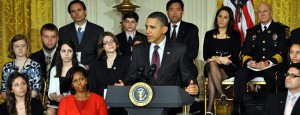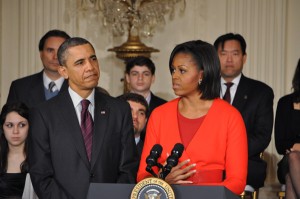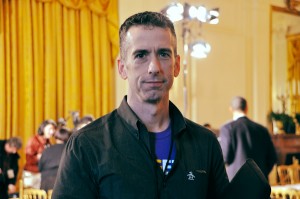National
White House hosts anti-bullying conference
Obama unveils stopbullying.gov as resource to address harassment

President Obama on Thursday opened the doors of the White House to anti-bullying advocates for a conference in which participants discussed harassment of students and devised strategies to curtail bullying.
In remarks starting off the conference, Obama said if the conference had one goal, it would be dispel the myth that bullying is “a harmless rite of passage or an inevitable part of growing up.”
“It’s not,” he said. “Bullying can have destructive consequences for our young people. And it’s not something we have to accept. As parents and students, as teachers and members of the community, we can take steps — all of us — to help prevent bullying and create a climate in our schools in which all of our children can feel safe; a climate in which they all can feel like they belong.”
The conference, in which around 150 students, parents, teachers and anti-bullying advocates participated, wasn’t specifically directed toward the bullying of LGBT students, although harassment of children because of their sexual orientation or gender identity was often mentioned.
Bullying against LGBT students received renewed attention late last year when several young men who were gay or perceived to be gay took their own lives after they were reportedly bullied. Among them was Tyler Clementi, a Rutgers University student, who leaped off the George Washington Bridge in September after a video was posted online of him reportedly having a sexual encounter with another man in his dorm room.
During his remarks, Obama noted that students who are gay are among the types of children who often face bullying at school.
“A third of middle school and high school students have reported being bullied during the school year,” Obama said. “Almost 3 million students have said they were pushed, shoved, tripped, even spit on. It’s also more likely to affect kids that are seen as different, whether it’s because of the color of their skin, the clothes they wear, the disability they may have, or sexual orientation.”
Obama also announced that his administration had launched a new website, stopbullying.gov, as a resource housed within the Department of Health & Human Services for parents, students and teachers on how to confront the issue of bullying in schools. The website is set to provide information on the risks of bullying and its warning signs and effects.
First lady Michelle Obama, who introduced the president at the start of the event, said the issue of bullying is personal for both her and her hisband because of their concern for their two daughters: Malia and Sasha.
“As parents, this issue really hits home for us,” she said. “As parents, it breaks our hearts to think that any child feels afraid every day in the classroom, or on the playground, or even online. It breaks our hearts to think about any parent losing a child to bullying, or just wondering whether their kids will be safe when they leave for school in the morning.”
Michelle Obama urged parents “to make a real effort to be engaged in our children’s lives” and to listen to them and be there when needed.
“We need to get involved in their schools and in their activities so that we know what they’re up to, both in and out of the classroom,” she said. “And when something is wrong, we need to speak up, and we need to take action.”
Following the president remarks, Valerie Jarrett, senior adviser to the president, led a panel discussion of anti-bullying experts to discuss ways that parents, administrators and government officials can work to curtail harassment of students.
Points that were mentioned included recommending that parents be friends with their children on Facebook for oversight purposes and how the behavior of those who perpetuate bullying must also be addressed as part of anti-bullying efforts.
After the panel, conference participants split into five break-out sessions for more extensive debate on particular issues related to bullying. Topics of the breakout session included cyberbullying and in-school programs to confront bullying.
Top Obama administration officials during a wrap-up session at the close of the conference emphasized the support that anti-bullying advocates have in the White House.
Education Secretary Arne Duncan announced a new initiative — a technical assistance center — which would specifically address harassment to complement anti-bullying efforts that are already underway.
“By trying to highlight these best practices, we will state and local policy makers and educators work to keep children safe and provide the best learning environment for all students,” Duncan said. “We can provide support, which is why I’m happy to announce today our department’s intention to establish a new technical assistance center specifically dedicated to bullying prevention.”
Secretary of Health & Human Services Kathleen Sebelius urged teachers and others to speak out when anti-gay slurs are used in schools.
“Building safe neighborhoods and schools where young people can thrive is a job for all of us,” Sebelius said. “It means speaking out next time you hear a homophobic slur, stepping in when you see someone being preyed upon and letting your local education leaders — from principals to schools — know that bullying is not an isolated part of growing up. It’s a serious danger for all of our children.”
Participants had a largely positive reaction to the event and thought it was productive in devising strategies to thwart bullying.
In a statement, Jeff Krehely, director of the LGBT research and communications project at the Center for American Progress, said the conference “put a national spotlight” on bullying and its potentially “destructive impact.”
“Although the event is born out of tragedies, the conference will hopefully spark a robust national discussion about what we can all do to stop this problem,” Krehely said. “With an increase in bullying and full-on assaults on youth who are perceived to be gay or transgender, as well as those who are perceived to be Muslim, now is the right time to show leadership on this issue.”
Caleb Laiseki, executive director of the Arizona-based Gays & Lesbians United Against Discrimination, said the conference was “much more productive” than he expected.
“I’m coming from Arizona, and Arizona can’t even pass the anti-bullying bill through committee, so I was extremely happy to see the White House was very dedicated to this,” Laiseki said.
Laiseki, who’s 16 and gay, dropped out of high school after he was bullied because of his sexual orientation and completed his education by earning a general equivalency diploma. He founded GLUAD to help address the problems he faced in school.
“The reason I started the organization was because I was pushed into lockers and humiliated,” he said. “I received death threats [and was] followed home. It was just one thing after another. And I also had friend commit suicide after several attempts. So, the main goal of GLAUD is homelessness, suicide prevention and anti-bullying work.”
Laiseki attended the breakout session focused on cyber-bullying and said he proposed that law enforcements have the tools to intervene immediately when such harassment takes place.
“We can immediately track down the [Internet protocol] address and go from there,” Laiseki said. “And both of the representatives [from the Obama administration] were in agreement. And we took notes actually and discussed it for at least one-third of the meeting.”
Dan Savage, founder of the “It Gets Better” online video campaign aimed at helping troubled LGBT teens, said the conference was of “tremendous symbolic importance” because it identified bullying as a national problem, but said more could be done with the issue of parents being the bullies of LGBT youth.
“What was never addressed is when the parents are the bullies,” Savage said. “LGBT kids whose parents reject them are eight times likelier to attempt suicide; kids who are LGBT are four times. It literally doubles the risk of the already quadrupled risk of suicide for LGBT kids when their families reject them.”
Legislation pending before Congress known as the Student Non-Discrimination Act and the Safe Schools Improvement Act would address the issue of LGBT bullying of students in schools. Savage, who’s gay and also a sex-advice columnist, said the passage of this legislation would be effective.
“It puts schools on notice,” Savage said. “It establishes a national sense of accountability. Schools are reactive. They don’t like to be sued. They don’t like to get in trouble with the folks that pay the bills — at the federal or state level — and it really creates a way for school administrators and school boards to be held accountable.”
Shannon Cuttle, director of Safe Schools Action Network, said she felt the event was effective because it drew more attention to the issue of bullying.
“I think that anytime that you can collectively get a group of people to work in collaboration to try to discuss this issue, it’s going to put a dent in the issue,” Cuttle said. “Today is making the right step. Being able to bring people from across America — teachers, administrators, individuals and students — that’s key.”
But Cuttle, a lesbian D.C. activist, said the best way to address the issue of bullying in schools to confront harassment with “boots on the ground.”
“We have to be able to go into the schools, we have to have conversations and we have to be able to discuss the issue,” she said. “We have to be able to have those honest, open conversations with teachers and school administrators, and as parents and students, we need to talk to our school boards and local officials and be able to put rules and policies in place to keep kids safe.”
Florida
AIDS Healthcare Foundation sues Fla. over ‘illegal’ HIV drug program cuts
Tens of thousands could lose access to medications

Following the slashing of hundreds of thousands of dollars from Florida’s AIDS Drug Assistance Program, AIDS Healthcare Foundation filed a lawsuit against the Florida Department of Health over what it says was an illegal change to income eligibility thresholds for the lifesaving program.
The Florida Department of Health announced two weeks ago that it would make sweeping cuts to ADAP, dramatically changing how many Floridians qualify for the state-funded medical coverage — without using the formal process required to change eligibility rules. As a result, AHF filed a petition Tuesday in Tallahassee with the state’s Division of Administrative Hearings, seeking to prevent more than 16,000 Floridians from losing coverage.
The medications covered by ADAP work by suppressing HIV-positive people’s viral load — making the virus undetectable in blood tests and unable to be transmitted to others.
Prior to the eligibility change, the Florida Department of Health covered Floridians earning up to 400 percent of the federal poverty level — or $62,600 annually for an individual. Under the new policy, eligibility would be limited to those making no more than 130 percent of the federal poverty level, or $20,345 per year.
The National Alliance of State and Territorial AIDS Directors estimates that more than 16,000 patients in Florida will lose coverage under the state’s ADAP because of this illegal change in department policy. Florida’s eligibility changes would also eliminate access to biktarvy, a widely used once-daily medication for people living with HIV/AIDS.
Under Florida law, when a state agency seeks to make a major policy change, it must either follow a formal rule-making process under the Florida Administrative Procedure Act or obtain direct legislative authorization.
AHF alleges the Florida Department of Health did neither.
Typically, altering eligibility for a statewide program requires either legislative action or adherence to a multistep rule-making process, including: publishing a Notice of Proposed Rule; providing a statement of estimated regulatory costs; allowing public comment; holding hearings if requested; responding to challenges; and formally adopting the rule. According to AHF, none of these steps occurred.
“Rule-making is not a matter of agency discretion. Each statement that an agency like the Department of Health issues that meets the statutory definition of a rule must be adopted through legally mandated rule-making procedures. Florida has simply not done so here,” said Tom Myers, AHF’s chief of public affairs and general counsel. “The whole point of having to follow procedures and rules is to make sure any decisions made are deliberate, thought through, and minimize harm. Floridians living with HIV and the general public’s health are at stake here and jeopardized by these arbitrary and unlawful DOH rule changes.”
AHF has multiple Ryan White CARE Act contracts in Florida, including four under Part B, which covers ADAP. More than 50 percent of people diagnosed with HIV receive assistance from Ryan White programs annually.
According to an AHF advocacy leader who spoke with the Washington Blade, the move appears to have originated at the state level rather than being driven by the federal government — a claim that has circulated among some Democratic officials.
“As far as we can tell, Congress flat-funded the Ryan White and ADAP programs, and the proposed federal cuts were ignored,” the advocacy leader told the Blade on the condition of anonymity. “None of this appears to be coming from Washington — this was initiated in Florida. What we’re trying to understand is why the state is claiming a $120 million shortfall when the program already receives significant federal funding. That lack of transparency is deeply concerning.”
Florida had the third-highest rate of new HIV infections in the nation in 2022, accounting for 11 percent of new diagnoses nationwide, according to KFF, a nonprofit health policy research organization.
During a press conference on Wednesday, multiple AHF officials commented on the situation, and emphasized the need to use proper methods to change something as important as HIV/AIDS coverage availability in the sunshine state.
“We are receiving dozens, hundreds of calls from patients who are terrified, who are confused, who are full of anxiety and fear,” said Esteban Wood, director of advocacy, legislative affairs, and community engagement at AHF. “These are working Floridians — 16,000 people — receiving letters saying they have weeks left of medication that keeps them alive and costs upwards of $45,000 a year. Patients are asking us, ‘What are we supposed to do? How are we supposed to survive?’ And right now, we don’t have a good answer.”
“This decision was not done in the correct manner. County health programs, community-based organizations, providers across the state — none of them were consulted,” Wood added. “Today is Jan. 28, and we have just 32 days until these proposed changes take effect. Nearly half of the 36,000 people currently on ADAP could be disenrolled in just over a month.”
“Without this medication, people with HIV get sicker,” Myers said during the conference. “They end up in emergency rooms, they lose time at work, and they’re unable to take care of their families. Treatment adherence is also the best way to prevent new HIV infections — people who are consistently on these medications are non-infectious. If these cuts go through, you will have sicker people, more HIV infections, and ultimately much higher costs for the state.”
“Patients receiving care through Ryan White and ADAP have a 91 percent viral suppression rate, compared to about 60 percent nationally,” the advocacy leader added. “That’s as close to a functional cure as we can get, and it allows people to live healthy lives, work, and contribute to their communities. Blowing a hole in a program this successful puts lives at risk and sets a dangerous precedent. If Florida gets away with this, other states facing budget pressure could follow.”
The lawsuit comes days after the Save HIV Funding campaign pressed Congress to build bipartisan support for critical funding for people living with or vulnerable to HIV. In May of last year, President Donald Trump appeared to walk back his 2019 pledge to end HIV as an epidemic, instead proposing the elimination of HIV prevention programs at the Centers for Disease Control and Prevention and housing services in his budget request to Congress.
House appropriators, led by the Republican majority, went further, calling for an additional $2 billion in cuts — including $525 million for medical care and support services for people living with HIV.
While Senate appropriators ultimately chose to maintain level funding in their version of the spending bills, advocates feared final negotiations could result in steep cuts that would reduce services, increase new HIV infections, and lead to more AIDS-related deaths. The final spending package reflected a best-case outcome, with funding levels largely mirroring the Senate’s proposed FY26 allocations.
“What the state has done in unilaterally announcing these changes is not following its own rules,” Myers added. “There is a required process — rule-making, notice and comment, taking evidence — and none of that happened here. Before you cut 16,000 people off from lifesaving medication, you have to study the harms, ask whether you even have the authority to do it, and explore other solutions. That’s what this lawsuit is about.”
National
Federal authorities arrest Don Lemon
Former CNN anchor taken into custody two weeks after Minn. church protest
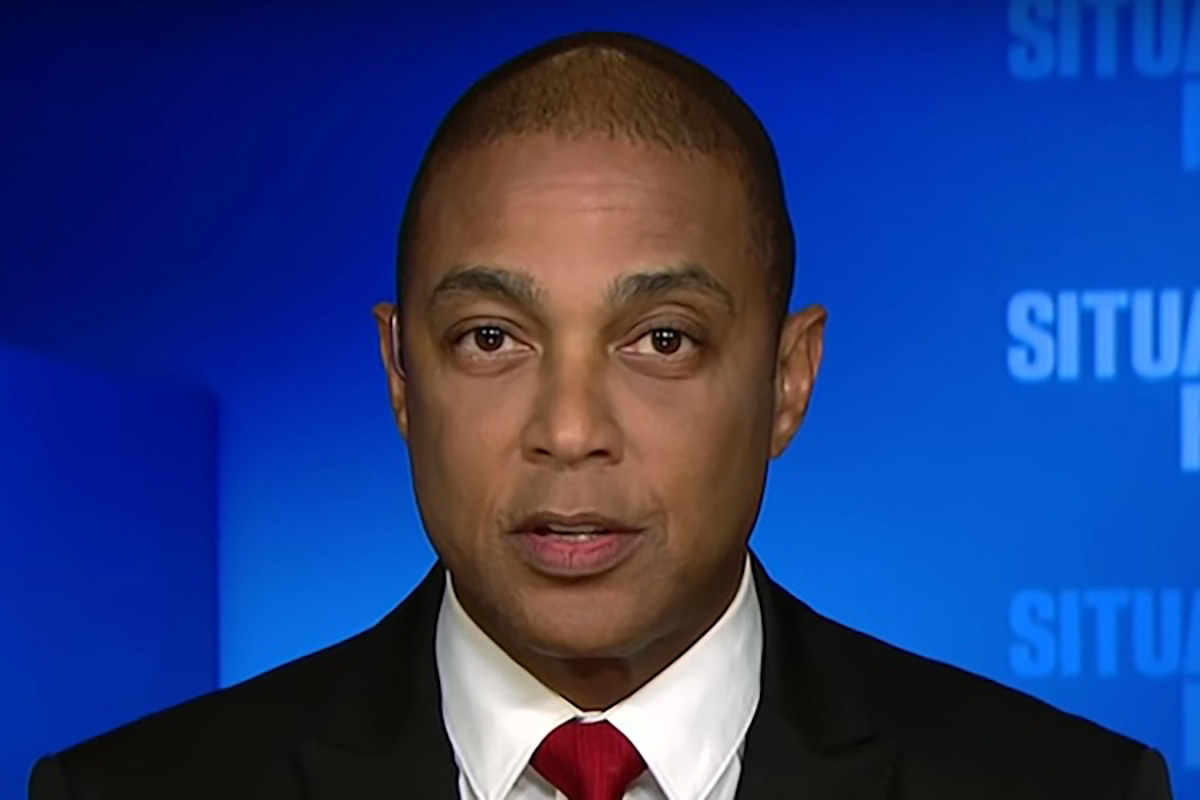
Federal authorities on Thursday arrested former CNN anchor Don Lemon in Los Angeles.
CNN reported authorities arrested Lemon after 11 p.m. PT while in the lobby of a hotel in Beverly Hills, Calif., while he “was leaving for an event.” Lemon’s lawyer, Abbe Lowell, in a statement said his client was in Los Angeles to cover the Grammy Awards.
Authorities arrested Lemon less than two weeks after he entered Cities Church in St. Paul, Minn., with a group of protesters who confronted a pastor who works for U.S. Immigration and Customs Enforcement. (An ICE agent on Jan. 7 shot and killed Renee Good, a 37-year-old Minneapolis woman who left behind her wife and three children. U.S. Customs and Border Protection agents on Jan. 24 shot and killed Alex Pretti, a 37-year-old nurse who worked for the Department of Veterans Affairs, in Minneapolis.)
Lemon insists he was simply covering the Cities Church protest that interrupted the service. A federal magistrate last week declined to charge the openly gay journalist in connection with the demonstration.
“Don Lemon was taken into custody by federal agents last night in Los Angeles, where he was covering the Grammy awards,” said Lowell in his statement. “Don has been a journalist for 30 years, and his constitutionally protected work in Minneapolis was no different than what he has always done. The First Amendment exists to protect journalists whose role it is to shine light on the truth and hold those in power accountable.”
“Instead of investigating the federal agents who killed two peaceful Minnesota protesters, the Trump Justice Department is devoting its time, attention and resources to this arrest, and that is the real indictment of wrongdoing in this case,” Lowell added. “This unprecedented attack on the First Amendment and transparent attempt to distract attention from the many crises facing this administration will not stand. Don will fight these charges vigorously and thoroughly in court.”
Attorney General Pam Bondi on X confirmed federal agents “at my direction” arrested Lemon and three others — Trahern Jeen Crews, Georgia Fort, and Jamael Lydell Lundy — “in connection with the coordinated attack on Cities Church in St. Paul, Minnesota.”
Fort is also a journalist.
At my direction, early this morning federal agents arrested Don Lemon, Trahern Jeen Crews, Georgia Fort, and Jamael Lydell Lundy, in connection with the coordinated attack on Cities Church in St. Paul, Minnesota.
More details soon.
— Attorney General Pamela Bondi (@AGPamBondi) January 30, 2026
Lemon, who CNN fired in 2023, is expected to appear in court in Los Angeles on Friday.
“Freedom of the press is a cornerstone of a free society; it is the tool by which Americans access the truth and hold power to account. But Donald Trump and Pam Bondi are at war with that freedom — and are threatening the fundamentals of our democracy,” said Human Rights Campaign President Kelley Robinson on Friday in a statement. “Don Lemon and Georgia Fort were doing their jobs as reporters. Arresting them is not law enforcement it is an attack on the Constitution at a moment when truthful reporting on government power has never been more important. These are the actions of a despot, the tactics of a dictator in an authoritarian regime.”
The White House
Expanded global gag rule to ban US foreign aid to groups that promote ‘gender ideology’
Activists, officials say new regulation will limit access to gender-affirming care
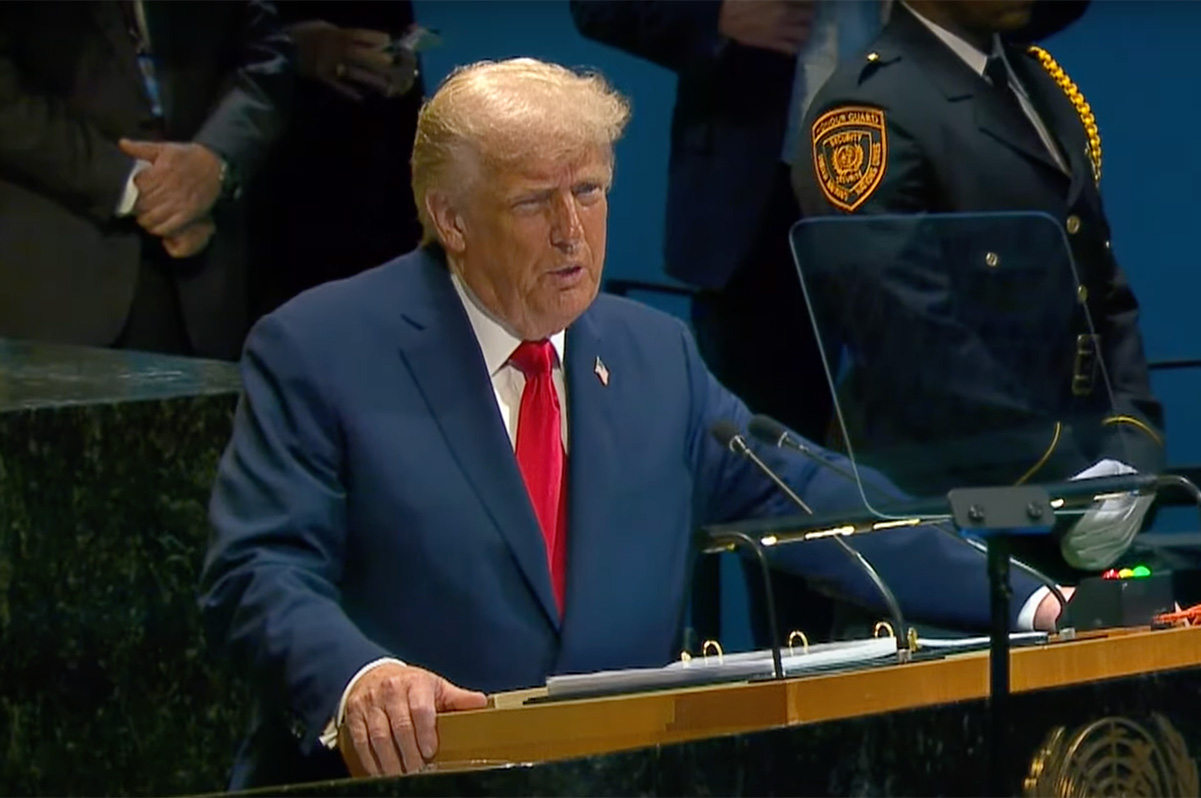
The Trump-Vance administration has announced it will expand the global gag rule to ban U.S. foreign aid for groups that promote “gender ideology.”
Deputy Secretary of State Christopher Landau in a memo, titled Combating Gender Ideology in Foreign Assistance, the Federal Register published on Jan. 27 notes “previous administrations … used” U.S. foreign assistance “to fund the denial of the biological reality of sex, promoting a radical ideology that permits men to self-identify as women, indoctrinate children with radical gender ideology, and allow men to gain access to intimate single-sex spaces and activities designed for women.”
“Efforts to eradicate the biological reality of sex fundamentally attack women by depriving them of their dignity, safety, and well-being. It also threatens the wellbeing of children by encouraging them to undergo life-altering surgical and chemical interventions that carry serious risks of lifelong harms like infertility,” reads the memo. “The erasure of sex in language and policy has a corrosive impact not just on women and children but, as an attack on truth and human nature, it harms every nation. It is the purpose of this rule to prohibit the use of foreign assistance to support radical gender ideology, including by ending support for international organizations and multilateral organizations that pressure nations to embrace radical gender ideology, or otherwise promote gender ideology.”
President Donald Trump on Jan. 28, 2025, issued an executive order — Protecting Children from Chemical and Surgical Mutilation — that banned federal funding for gender-affirming care for minors.
President Ronald Reagan in 1985 implemented the global gag rule, also known as the “Mexico City” policy, which bans U.S. foreign aid for groups that support abortion and/or offer abortion-related services.
Trump reinstated the rule during his first administration. The White House this week expanded the ban to include groups that support gender-affirming care and diversity, equity, and inclusion programs.
The expanded global gag rule will take effect on Feb. 26.
“None of the funds made available by this act or any other Act may be made available in contravention of Executive Order 14187, relating to Protecting Children From Chemical and Surgical Mutilation, or shall be used or transferred to another federal agency, board, or commission to fund any domestic or international non-governmental organization or any other program, organization, or association coordinated or operated by such non-governmental organization that either offers counseling regarding sex change surgeries, promotes sex change surgeries for any reason as an option, conducts or subsidizes sex change surgeries, promotes the use of medications or other substances to halt the onset of puberty or sexual development of minors, or otherwise promotes transgenderism,” wrote Landau in his memo.
Landau wrote the State Department “does not believe taxpayer dollars should support sex-rejecting procedures, directly or indirectly for individuals of any age.”
“A person’s body (including its organs, organ systems, and processes natural to human development like puberty) are either healthy or unhealthy based on whether they are operating according to their biological functions,” reads his memo. “Organs or organ systems do not become unhealthy simply because the individual may experience psychological distress relating to his or her sexed body. For this reason, removing a patient’s breasts as a treatment for breast cancer is fundamentally different from performing the same procedure solely to alleviate mental distress arising from gender dysphoria. The former procedure aims to restore bodily health and to remove cancerous tissue. In contrast, removing healthy breasts or interrupting normally occurring puberty to ‘affirm’ one’s ‘gender identity’ involves the intentional destruction of healthy biological functions.”
Landau added there “is also lack of clarity about what sex-rejecting procedures’ fundamental aims are, unlike the broad consensus about the purpose of medical treatments for conditions like appendicitis, diabetes, or severe depression.”
“These procedures lack strong evidentiary foundations, and our understanding of long-term health impacts is limited and needs to be better understood,” he wrote. “Imposing restrictions, as this rule proposes, on sex-rejecting procedures for individuals of any age is necessary for the (State) Department to protect taxpayer dollars from abuse in support of radical ideological aims.”
Landau added the State Department “has determined that applying this rule to non-military foreign assistance broadly is necessary to ensure that its foreign assistance programs do not support foreign NGOs and IOs (international organizations) that promote gender ideology, and U.S. NGOs that provide sex-rejecting procedures, and to ensure the integrity of programs such as humanitarian assistance, gender-related programs, and more, do not promote gender ideology.”
“This rule will also allow for more foreign assistance funds to support organizations that promote biological truth in their foreign assistance programs and help the (State) Department to establish new partnerships,” he wrote.
The full memo can be found here.
Council for Global Equality Senior Policy Fellow Beirne Roose-Snyder on Wednesday said the expansion of the so-called global gag rule will “absolutely impact HIV services where we know we need to target services, to that there are non-stigmatizing, safe spaces for people to talk through all of their medical needs, and being trans is really important to be able to disclose to your health care provider so that you can get ARVs, so you can get PrEP in the right ways.” Roose-Snyder added the expanded ban will also impact access to gender-affirming health care, food assistance programs and humanitarian aid around the world.
“This rule is not about gender-affirming care at all,” she said during a virtual press conference the Universal Access Project organized.
“It is about really saying that if you want to take U.S. funds — and it’s certainly not about gender-affirming care for children — it is if you want to take U.S. funds, you cannot have programs or materials or offer counseling or referrals to people who may be struggling with their gender identity,” added Roose-Snyder. “You cannot advocate to maintain your country’s own nondiscrimination laws around gender identity. It is the first place that we’ve ever seen the U.S. government define gender-affirming care, except they call it something a lot different than that.”
The Congressional Equality Caucus, the Democratic Women’s Caucus, the Congressional Hispanic Caucus, the Congressional Asian and Pacific American Caucus, and the Congressional Black Caucus also condemned the global gag rule’s expansion.
“We strongly condemn this weaponization of U.S. foreign assistance to undermine human rights and global health,” said the caucuses in a statement. “We will not rest until we ensure that our foreign aid dollars can never be used as a weapon against women, people of color, or LGBTQI+ people ever again.”
-

 LGBTQ Non-Profit Organizations5 days ago
LGBTQ Non-Profit Organizations5 days agoTask Force urges renewed organizing amid growing political threats
-

 Federal Government5 days ago
Federal Government5 days agoTop Democrats reintroduce bill to investigate discrimination against LGBTQ military members
-

 Russia5 days ago
Russia5 days agoRussia designates ILGA World an ‘undesirable’ group
-

 Virginia5 days ago
Virginia5 days agoFrom the Pentagon to politics, Bree Fram fighting for LGBTQ rights

